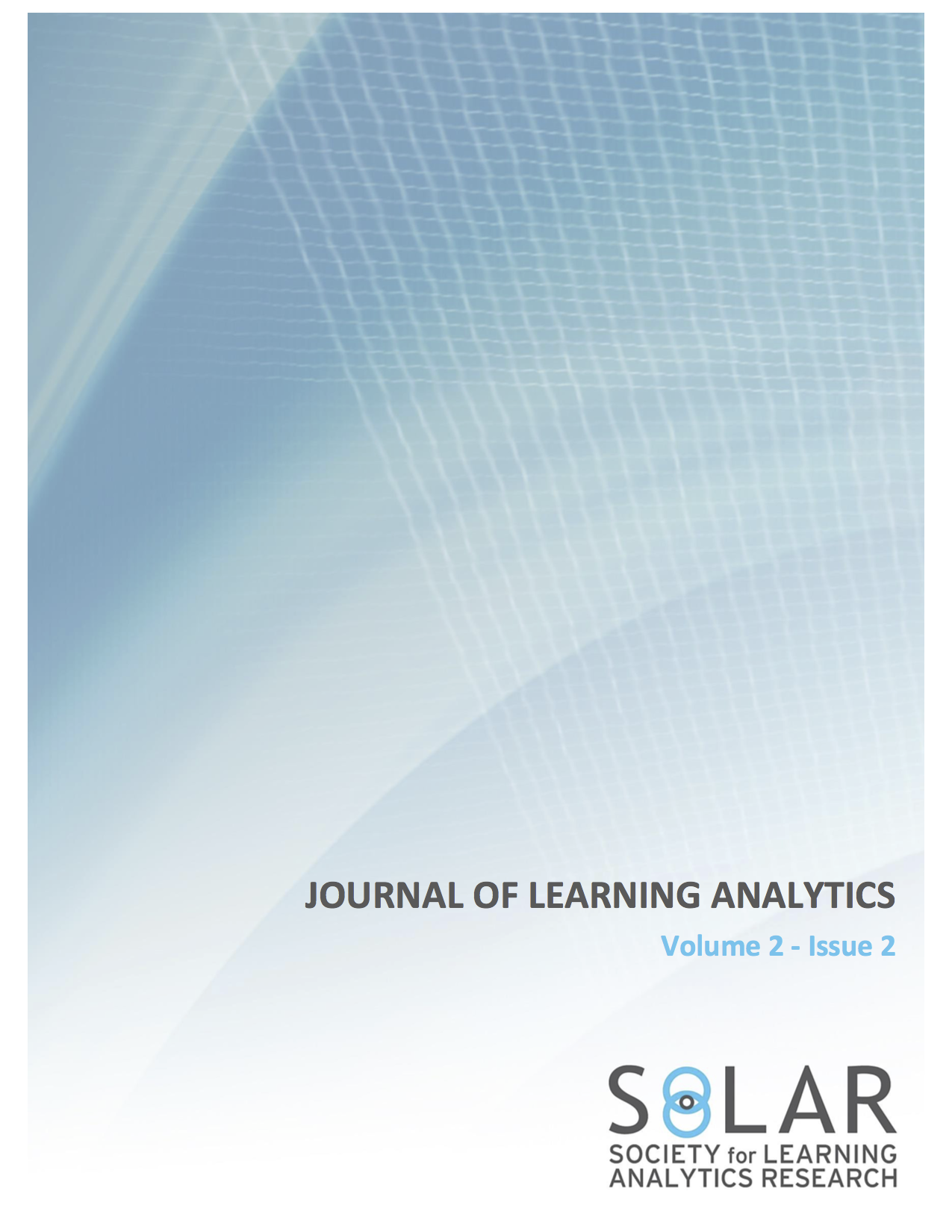Theory-led Design of Instruments and Representations in Learning Analytics: Developing a Novel Tool for Orchestration of Online Collaborative Learning
DOI:
https://doi.org/10.18608/jla.2015.22.3Keywords:
Automated discourse analysis, collaborative learning, orchestration, learning analytics, topic detectionAbstract
This paper describes theory-led design as a way of developing novel tools for learning analytics. It focuses upon the domain of real-time automated discourse analysis (ADA) of group learning activities to facilitate instructor orchestration of online groups. The paper outlines the literature on the development of LA especially within the domain of ADA, and proposes that there is reason to conduct more tool development based upon first-principles. It describes first principles as being drawn from theory and subsequently informing the structure and behaviour of tools and presents a framework for this process. The framework is substantiated through the example of developing a new tool for assisting instructors with the orchestration of online groups. A description of the tool is given and examples of results from use with real-world data are presented. The paper concludes that whilst design purely from first principles may be elusive, the call is for more intent to explicitly connect the design process to theory on the basis that this has the potential to yield innovation when developing tools as well as the prospect of a the outcomes from tools connecting back to theory.
Downloads
Published
How to Cite
Issue
Section
License
TEST


